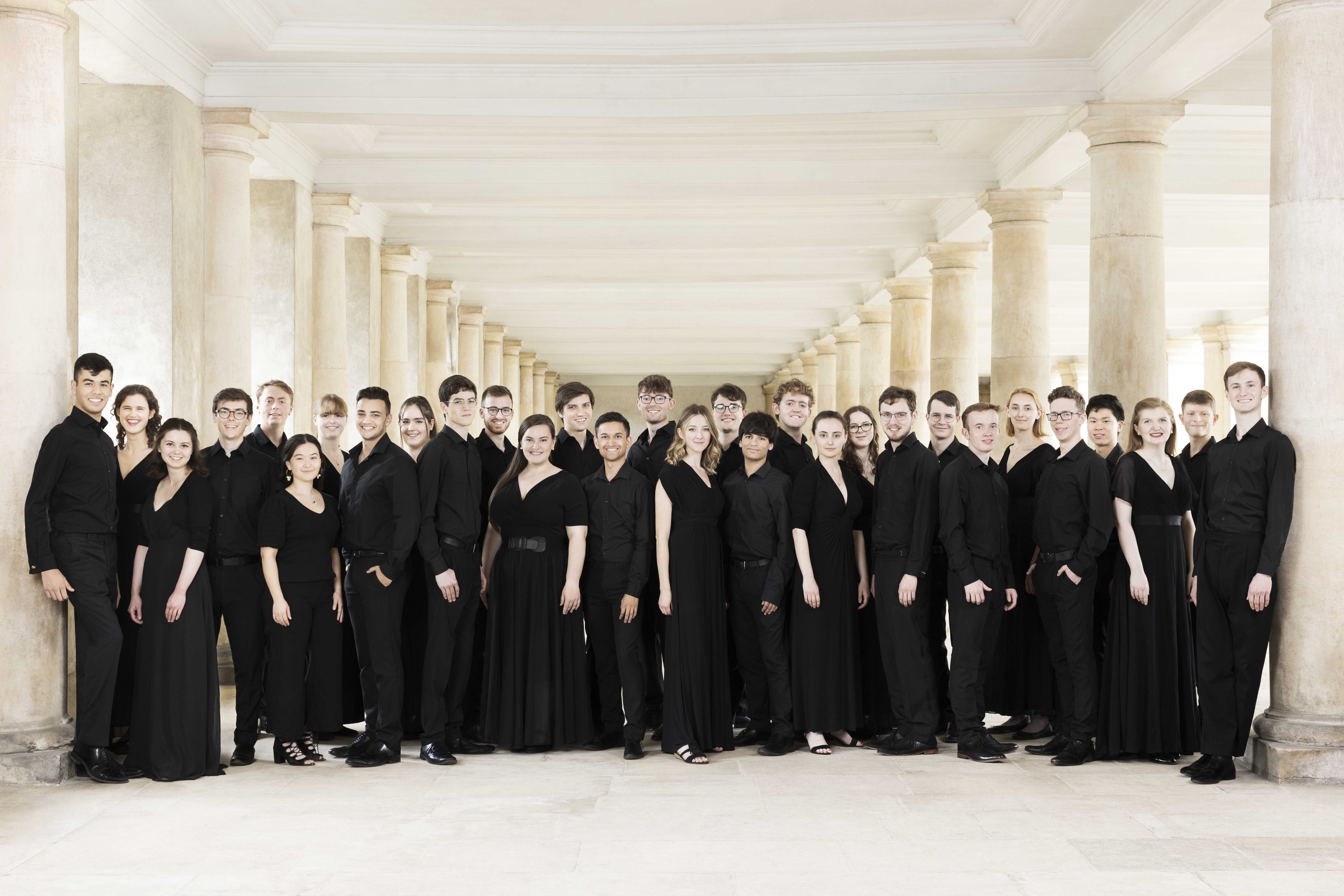USA tour - September 2019
> See concert details...Rattle off musical attractions that could pack a cathedral, and the list might include well-known orchestras on tour, or superstar soloists. “Collegiate chapel choir” may not spring to mind right away. However, the Choir of Trinity College Cambridge is no mere a capella group, and its associated organ scholars no mere keyboardists. The long-respected, ever-renewed ensemble brought hundreds of Northeast Ohioans to Trinity Cathedral on Wednesday, September 18 for a program of classics and contemporary fare from English and international choral traditions.
Leading a delegation of undergraduate singers and organ scholars drawn from the group’s full roster, director Stephen Layton — who previously visited Trinity Cathedral in 1979 as a chorister with the Winchester Cathedral Choir — conducted the first four selections without pause, as a suite. Byrd’s Sing Joyfully swept along on the power of a thrumming bass sound, until a late shift of gears called retroactive attention to the celebratory speediness of the opening. O Lord, make thy servant, Elizabeth moved at a statelier pace, and gave the students a chance to show off their tight coordination, sibilant sounds leaping out between long vowels.
Tallis’s Salvator Mundi represented a further slackening of tempo as well as a turn toward sadness, its crystalline harmony sparkling amid the grit of the scene at Golgotha. Purcell’s Thou knowest, Lord served as the culmination of Layton’s effective strategy of moving from briskness and simple joy to contemplative texts and tempos.
After a visit with Bach in the form of a floating, blossoming prelude and fugue played by an organ scholar, the Choir resumed with a crisp reading of Pärt’s Bogoróditse Djévo. Tavener’s Mother of God, Here I Stand and Kallinikov’s setting of the same Bogoróditse Djévo text followed without pause, their drama and intensity rejoinders to Pärt’s serenity. Parsons’s Ave Maria rounded out the set, unfurling like a bolt of fine fabric.
The second half opened with contemporary pieces that hit like a cool lake breeze, startling yet refreshing in context. Ešenvalds’s The Heavens’ Flock, a subtly secular ode to the stars, glowed and soared with the kinds of thick, shimmering harmony favored by many living choral composers. However, it stands out from similar repertoire for its shifts of texture and inventiveness in text-painting.
Lauridsen’s O Magnum Mysterium sounded tame by comparison, though hats off to Layton for conducting the often-dragged favorite at its true tempo. Mäntyjärvi’s Richte mich, Gott must be heard to be believed, its chords hailing from somewhere between Helsinki, Hollywood, and Heaven itself. The young singers nonetheless tackled it with apparent ease.
Bach’s chorale prelude Erbarme dich flowed down from the organ loft at a meditative tempo, preparing the audience for the final leg of its emotional journey. Howells’s Take Him, Earth, for Cherishing, written for a joint Canadian-American memorial service on the first anniversary of John F. Kennedy’s death, proceeded from emotional neutrality to flurries of feeling and back again. Holst’s Nunc Dimittis further calmed the overall mood.
An encore gave the ensemble a chance to inject some fun after the solemnity: Ellington’s It Don’t Mean a Thing resounded with bell-like clarity, its joyful syncopations reaching the rafters.
Nicholas Stevens
